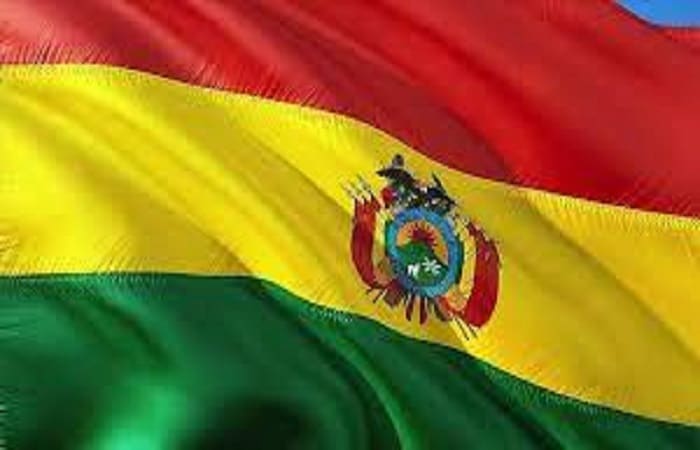Bolivia Independence Day stands as one of the most cherished holidays in the nation, a time for celebration, introspection, and the reverential honor of the country’s splendid heritage. Embark with us on an exploration of the captivating narrative behind Bolivia’s journey to independence and the exuberant festivities that accompany this special day.
History of Bolivia Independence Day
In 1809, the Bolivian war of Independence commenced as government juntas were established in Sucre and La Paz, following the Chuquisaca Revolution and La Paz revolution. These Juntas faced defeat shortly thereafter, resulting in the recapture of the cities by the Spanish. The viceroy in Buenos Aires was overthrown during the May Revolution of 1810, leading to the establishment of its own junta. In an attempt to reclaim Upper Peru, Buenos Aires dispatched three significant military expeditions led by Juan José Castelli, Manuel Belgrano, and José Rondeau. However, the royalists emerged victorious in each confrontation. Nevertheless, the conflict transformed into a guerrilla war known as the War of the Republiquetas, hindering the royalists’ efforts to strengthen their dominion. Following the triumph of Simón Bolívar and Antonio José de Sucre over the royalists in northern South America, Sucre spearheaded a campaign that ultimately secured a definitive victory over the royalists in Charcas. This was achieved when the last royalist general, Pedro Antonio Olañeta, faced defeat and death at the hands of his own defected forces in the Battle of Tumusla. On 6 August 1825, Bolivian independence was officially declared.
Bolivia Independence Day: Celebratory Traditions
Independence Day in Bolivia unfolds as a grand and jubilant spectacle, brimming with fervour and unwavering patriotism. The festivities commence in the weeks preceding the 6th of August and extend throughout the month. Let us now explore some of the distinguished traditions that infuse this remarkable holiday with its unique charm:
El Grito de Libertad (The Cry of Freedom)
As the clock strikes midnight on Independence Day, Bolivians gather in town squares and public spaces to participate in the inspiring ceremony known as “El Grito de Libertad.” This symbolic act involves the pealing of bells and passionate chants of “¡Viva Bolivia!” (Long live Bolivia!) and “¡Viva la Patria!” (Long live the homeland!). The echoes of these resounding cries reverberate through the streets, symbolizing unity, freedom, and the invincible spirit of the Bolivian people.
Traditional Music and Dance
Music and dance form an essential cornerstone of the festivities, serving as a poignant reflection of Bolivia’s multicultural heritage. Traditional folk dances, such as the captivating “Diablada” and energetic “Caporales,” take center stage with their skillful performances and infectious enthusiasm. These captivating displays of artistry and rhythm pay homage to the country’s indigenous roots, European influences, and African heritage.
Bolivia’s Kaleidoscope of Cultures
Bolivia stands renowned for its remarkable cultural tapestry, which unfolds in all its splendor during the celebrations of Independence Day. The nation’s population encompasses numerous indigenous groups, each with their unique languages, customs, and traditions. From the vibrant Aymara and Quechua communities to the Afro-Bolivian and Mestizo populations, Bolivia embraces and celebrates its multicultural fabric during this national holiday.
Read More: 6 August in Indian & World History
Must-Visit Destinations for the Independence Day Experience
If you plan to visit Bolivia during Independence Day, several destinations promise an immersive experience like no other:
La Paz
As the capital city, La Paz radiates vibrant celebrations and an electrifying ambiance during Independence Day. The heart of the festivities lies in Plaza Murillo, the city’s main square, which serves as the epicenter of parades, music, and cultural performances. Witnessing the grandeur of La Paz during this time is an unforgettable experience that will leave an indelible mark on your memories.
Sucre
Known as the constitutional capital of Bolivia, Sucre beckons as another destination of choice for Independence Day revelries. This picturesque city, steeped in history, boasts colonial architecture that sets a stunning stage for the celebrations. The streets burst to life with dance troupes, the sky is adorned with mesmerizing fireworks, and an infectious sense of jubilation permeates the air.
Bolivia Independence Day serves as an opportunity for Bolivians worldwide to embrace their shared heritage, express unwavering national pride, and honor the diverse cultures that weave together to make Bolivia an unparalleled and truly exceptional country.

